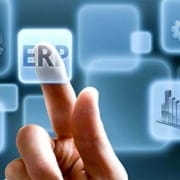Ask anyone in business what the secret to being the best is and a majority will say it is to stand out from the crowd. Be the best, most unique, most innovative, and simple different from your competition. But that doesn’t necessarily need to be applied to every aspect of your business. Claus Jepsen, Forbes Council Member and chief product and technology officer at Unit4, shares an article on Forbes Innovation about the importance of sticking with your sector when it comes to choosing an ERP (enterprise resource planning) system. “Being ‘just like everyone else’ in your sector can pay off when selecting a core business system,” he states. Global spend on ERP software is estimated to reach US$53.15 billion in 2024 with an annual growth of 4.26% (CAGR) to 2029, according to Statista. However, Gartner predicts that by 2027, more than 70% of recent implementations will fail to fully meet their business goals. This can be due to many factors such as poor planning, shoddy data quality, wrong assumptions, lack of leadership buy-in and unhappy users. Companies can spend a fortune on the wrong system—and then waste more resources trying to clear up the mess. Jepsen believes there is a safer way to buy an ERP: Resist the desire to be different.
When scouring the marketplace, Jepsen highly suggest to pick an ERP that credible competitors in your sector are using already. Be like them because their ERP systems have proven to work for their (and your) type of business. There are three major reasons for this, according to Jepsen:
- You’ll avoid costly customizations. “ERPs should reflect industry practices and local laws for each vertical market. If you find an ERP vendor that has years of knowledge in your sector, they’ll probably cover all of your business processes from the outset. The software will reflect industry best practices too, which will help to modernize and drive efficiency in how you operate as a business. Alternatively, if you select a fairly generic ERP—or something primarily used by another sector—these missing features may quickly become apparent.”
- You’ll get a faster payback. “The availability of ready-to-go application programming interfaces (APIs) for your sector is absolutely critical and something you must check before you buy an ERP. APIs enable disparate systems to talk to each other. As a result, critical business data moves freely between your ERP and the other software packages you use, whether it happens to be a CRM or maybe a warehousing system. ERP vendors with domain expertise should already have the most important APIs that are commonly used in your sector—and this is key. You can plug and play immediately with these standard APIs, get a faster return on your ERP investment and energize your overall digital strategy.”
- You’ll become more future-ready. “A good-quality ERP vendor serving multiple companies in your sector will be one step ahead and responsive to your needs, launching new capabilities that meet your aspirations and upcoming challenges. There’s every likelihood that you and your peers will need new system features and APIs along the line—so it’s worth the vendor keeping everyone happy. From a customer perspective, there’s safety in numbers. As an aside, it’s also worth choosing an ERP vendor that’s a good fit for the size of your business.”
For Full Article, Click Here




Leave a Reply
Want to join the discussion?Feel free to contribute!